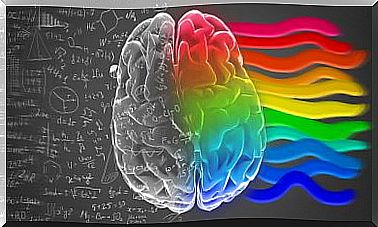Evening Syndrome, What Is It?
Evening syndrome consists of a feeling of agitation and disorientation that occurs in the late afternoon. It continues at night and can cause anxiety and irritation in the sufferer.
Evening syndrome is a disorder that affects almost 20% of people with Alzheimer’s. Alzheimer’s disease is the most common cause of dementia; It consists of a decrease in the cognitive abilities of the person.
That is, Alzheimer’s causes memory, thinking, behavior and many more cognitive functions to be altered. It is a progressive disorder that ends up incapacitating people and affects almost 10% of the elderly over 65 years of age.
Due to its incidence and importance, in this article we explain what evening syndrome consists of and how to treat it.
What is evening syndrome?

As we have mentioned, the evening syndrome is a period of disorientation that appears during the afternoon and can last into the evening. It affects people with Alzheimer’s. In fact, it usually appears in those who go through the intermediate stage of this disease.
It is not really clear why it happens. Some studies indicate that its cause is an alteration of the circadian rhythm. The circadian rhythm refers to that “internal clock” that allows us to control the cycles of rest and wakefulness.
This rhythm is controlled by an area of the brain called the suprachiasmatic nucleus. Its operation is based on a substance called melatonin. It is believed that the evening syndrome is due to the alteration of this area in Alzheimer’s.
By damaging this area, the amount of melatonin is modified and the entire biological clock is altered. This is why this confusion and disorientation occurs.
However, it is also related to other factors. For example, tiredness, hunger, and thirst are believed to play a role. Similarly, the dimmer light at this time, pain and discomfort are also associated with evening syndrome.
What are the symptoms of evening syndrome?
In reality, evening syndrome is not a disease. It is a set of symptoms that occur during the afternoon. In addition, it is convenient to know that it can also occur in other dementias, not only in Alzheimer’s.
Mainly, the evening syndrome causes disorientation and anxiety. However, it can also cause aggression or the person who suffers from wandering from one place to another.
Those who suffer from it may try to tear their clothes or throw objects. In fact, they may try to hurt themselves and scream. Some are very sleepy during the day and more active at night.

Tips for Coping with Evening Syndrome
There is no specific measure to avoid evening syndrome, but there are a number of behaviors that can help reduce or avoid Alzheimer’s symptoms. The ideal is to always go to a doctor who will advise you. But, in addition, you can follow these tips :
- Try to expose the sufferer to natural light early in the morning. This causes the circadian rhythm to regulate itself. If it is not possible, you can do it with artificial light.
- Ideally, prevent the patient from sleeping during the day. To do this, plan simple activities or easy exercises; so you can rest better at night.
- You have to take care of your diet, reducing the consumption of sweets and eliminating caffeine. Dinners should be light, as heavy digestion always influences rest.
- At bedtime, you have to try to make the atmosphere as relaxed as possible. People with Alzheimer’s should not be subjected to physical restraints, as they cause even more fear and agitation.
- Try to create stable routines and times for meals and activities.
Of course, you have to transmit all the tranquility and confidence possible at the time that you suffer from the evening syndrome. Also, try to ensure that the person always has familiar objects nearby. In fact, changes of residence should be avoided.
In conclusion
If someone close to you suffers from Alzheimer’s and you think they may be having an evening syndrome, the ideal is that you go to a doctor for advice.
Even if it is hard, try to remain calm and transmit as much serenity as possible. Try to establish daily routines for meals and activities, and above all, control the hours of sleep.









